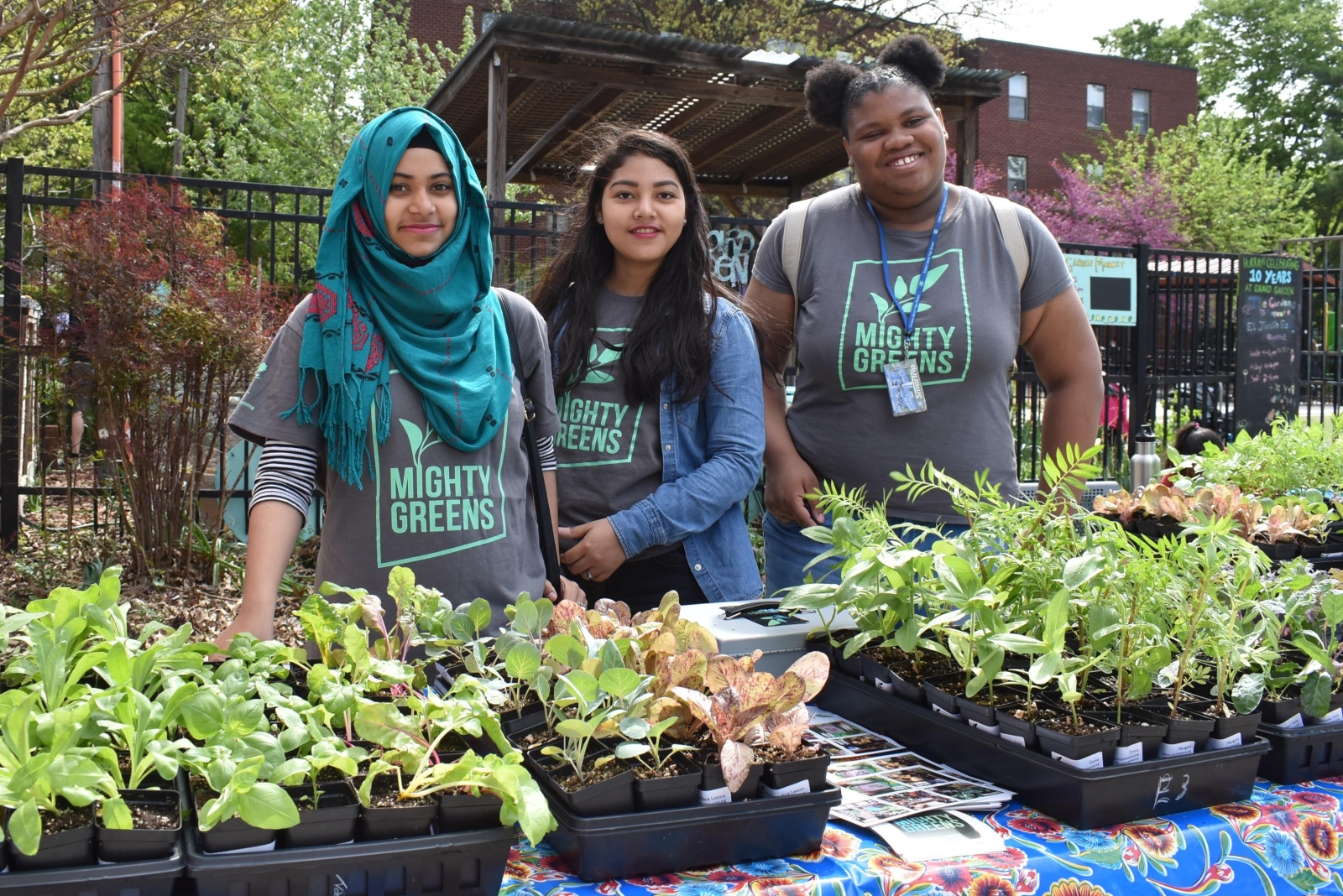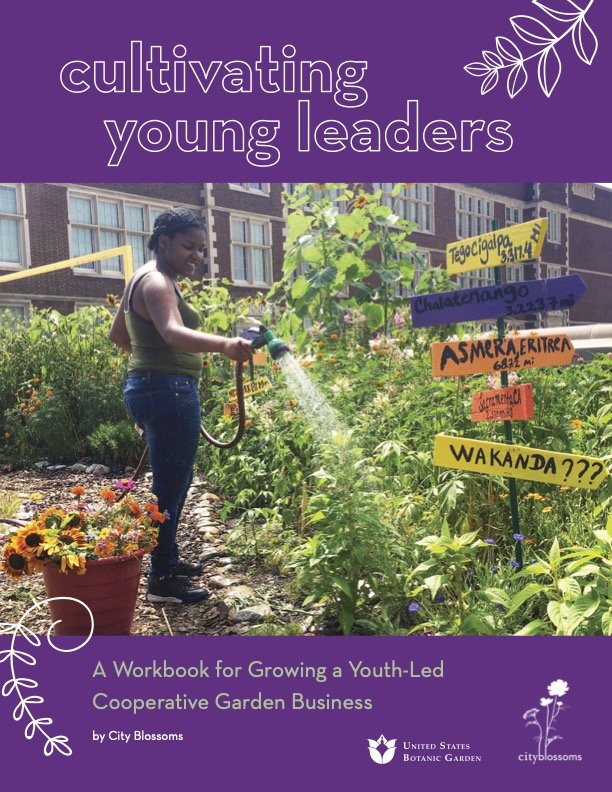 March 22, 2022
March 22, 2022
City Blossoms, in partnership with the United States Botanic Garden (USBG), announces the release of “Cultivating Young Leaders: A Workbook for Growing a Youth-Led Cooperative Garden Business.” This innovative resource, informed by City Blossoms’ Youth Entrepreneurship Cooperative (YEC) program, is complete with templates and tools to support anyone interested in connecting high school youth with gardens and entrepreneurship skill-building.
This workbook includes in-depth insights from City Blossoms staff, who have committed more than seven years to growing the YEC program. This resource gives insight into City Blossoms’ philosophy for recruiting participants, forming local partnerships, designing a safe and inviting meeting space, and launching a youth-led cooperative business. At the center of this resource is a detailed overview of Mighty Greens, a youth-led, garden-based, entrepreneurship project developed through the YEC program. These insights include perspectives from several generations of Mighty Greens Youth Staff and school partners. The workbook is filled with guiding questions to assist others in developing their own unique adaptation of this program.
“This resource offers an accessible model that prioritizes centering youth voices, as they are the ultimate change makers. We encourage users to be creative and utilize components of the YEC program to meet the unique needs of their own communities. We are excited to share what we’ve learned and meet the growing demand for this resource!” said Rafael Woldeab, executive director of City Blossoms.
“City Blossoms and the USBG recognize the need for equitable and community-led resources that can inform and inspire opportunities nationwide for youth to engage in garden-based entrepreneurship,” said Saharah Moon Chapotin, executive director of the U.S. Botanic Garden. “We are proud to collaborate with them to bring this workbook to life.”
 “Mighty Greens teaches people how to cook and make profitable products, such as dried herb salts, teas, and body lotions. These trade skills help to prepare people for careers in the gardening and farming industries. It also allows students like me to socialize with other people by allowing us to interact with the community that we are serving. Seeing a smile on someone’s face makes me feel appreciated and lets me know that my service is making a difference to others,” said Eden Amare, Mighty Greens youth staff.
“Mighty Greens teaches people how to cook and make profitable products, such as dried herb salts, teas, and body lotions. These trade skills help to prepare people for careers in the gardening and farming industries. It also allows students like me to socialize with other people by allowing us to interact with the community that we are serving. Seeing a smile on someone’s face makes me feel appreciated and lets me know that my service is making a difference to others,” said Eden Amare, Mighty Greens youth staff.
In 2021, City Blossoms engaged with over 190 high school students through their Youth Entrepreneurship Cooperative program during weekly, in-person and virtual opportunities. City Blossoms staff hosted over 325 hours of after-school YEC programming from January 2021 through December 2021.
City Blossoms and the USBG offer this resource to serve as a jumping off point for teachers, school administrators, community-based organizations, community members, and parents interested in starting their own programming. This workbook follows the co-publication of a Greenhouse Manual, developed and released by the USBG, City Blossoms, and the National Center for Appropriate Technology, to help educators build and use greenhouses for educational purposes.
Contacts:
Devin Dotson, U.S. Botanic Garden devin.dotson@aoc.gov 202-306-6743
Willa Pohlman, City Blossoms willa@cityblossoms.org 202.882.2628
Photos available at: https://www.dropbox.com/sh/h5ax3oe6pv9c8ze/AABblM4xUZCH077bPbi6M_7qa?dl=0
About City Blossoms
City Blossoms is a nonprofit dedicated to cultivating the well-being of our communities through creative programming in kid-driven gardens. Washington, D.C. is our home base, where we innovate new resources, approaches, and techniques. Applying our unique brand of gardens, science, art, healthy living, and community building, we “blossom” in neighborhoods where kids, their families, and neighbors may not otherwise have access to green spaces. www.cityblossoms.org
About the U.S. Botanic Garden
The United States Botanic Garden (USBG) is the oldest continuously operating public garden in the United States. The Garden informs visitors about the importance and fundamental value and diversity of plants, as well as their aesthetic, cultural, economic, therapeutic, and ecological significance. With over a million visitors annually, the USBG strives to demonstrate and promote sustainable practices. The U.S. Botanic Garden is a living plant museum accredited by the American Alliance of Museums and Botanic Gardens Conservation International. www.USBG.gov